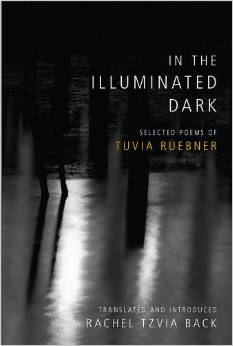(With today’s post, the LARB Blog continues featuring content from its new Channels Project. The LARB Channels — which include the websites Avidly, Marginalia and Boom — are a community of independent online magazines specializing in literary criticism, politics, science and culture, supported by the Los Angeles Review of Books. Today’s post comes from Marginalia, an international, open access review of literature and culture in the nexus of history, theology, and religion.)
Last week, Marginalia published this essay on the risks and rewards of translating poetry – we think it deserves a read. The essay, written by Rachel Tzvia Back, records the challenges of translating Tuvia Ruebner from Hebrew to English. Translating Ruebner is particularly compelling, Back notes, because of “the fact that Ruebner’s poetry and poetic sensibility occupied from the very beginning a place of being ‘always already in translation,’ a place of in-betweenness, doubleness and fragmentation.”
From “Translating Poetry: An Act and Art of Preserving the Essential” by Rachel Tzvia Back
But that which is lost is hardly the last word on the translation project (contrary to oft-quoted axioms on the matter). For whatever is lost in the transfer, other attributes and elements are gained. Indeed, the art and act of translating poetry is, finally, an art and act of transformation; as Benjamin states, there is “a renewal of something living — the original undergoes a change.” Through that renewal, the original gains a new life it might not have had otherwise — a presence in the world that is, as the epigraph to this piece suggests, “ … the same — different — the same attributes, / different yet the same as before” (H.D.). The language into which the poem is translated is, ideally, also transformed through its wrestling with the foreignness of the original language. In the best cases, the language-wrestling leaves an origin-telling mark on the target language — reminiscent, perhaps, of the mark left on Jacob’s thigh after his own night of wrestling with an unnamed, intimate, other.
Read the full essay here.


